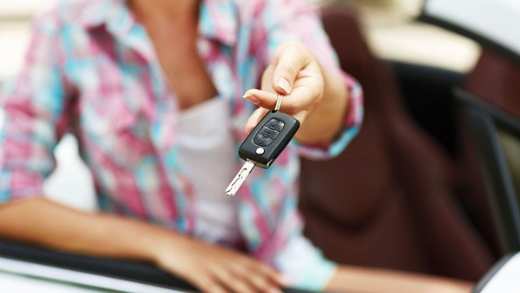Here at the Aviva Driving School, we understand how nervous you feel in the run-up to your driving test – we’ve all been there and remember what it’s like!
One of the best ways to overcome this worried feeling is to be as prepared as possible. Have a look at our driving test tips and advice to get yourself ready for the main event.

Before the driving test:
- Learner drivers
So you've already bought driving lessons from Aviva Driving School and your parent, guardian, spouse, partner, aunt, uncle or grandparent has a car insurance policy with Aviva. We've got good news - activate your accompanied driver cover and go out with confidence! - Revisit your theory
Have a look back over your Rules of the Road book to ensure you are familiar with road signs and the correct driving procedure. When you feel confident about the rules of the road, you’ll feel more comfortable during your test and will likely feel more at ease making decisions and won’t second-guess yourself. - Driving test routes
Although it is tempting to try and learn off the test routes, you are much better to make sure that you can drive in a wide variety of road and traffic conditions. This will allow you to concentrate on your driving so not trying to second guess where the Tester will be taking you. - Drive in different conditions
It’s a sad truth that we can’t rely on dry, sunny days here in Ireland! So make sure you practice driving in weather such as rain, wind and overcast days, when it is safe to do so. This way you’ll feel comfortable taking your test in any kind of weather. - Fuel your body
Prepare for driving test trying to get a good night’s sleep before your test, as it will help you feel less jittery on the day. Also make sure you eat something before your test; otherwise, your concentration levels could be affected. - Get to know the mechanics of a car
Make sure you know how to carry out basic vehicle safety checks as the tester will ask you how to explain a number of these on the day of your test. It is also important that you can demonstrate how to operate secondary controls on your car such as the car horn, ignition, indicators, wipers, and lights before you begin driving.
Extra driving test tips:
- Unlike your driving instructor, the driving tester will not give advice or guidance. They are there simply to assess your driving performance so they’ll avoid any unnecessary conversation so that you can concentrate on your driving.
- Your driving tester understands that you’ll be nervous during the test, so don’t panic about shaky hands or an unsteady voice!
- A mistake does not necessarily mean you have failed, so do not spend time trying to figure out if you think the mistake you just made will cause you to fail. Push it from your head and focus on your driving instead.



